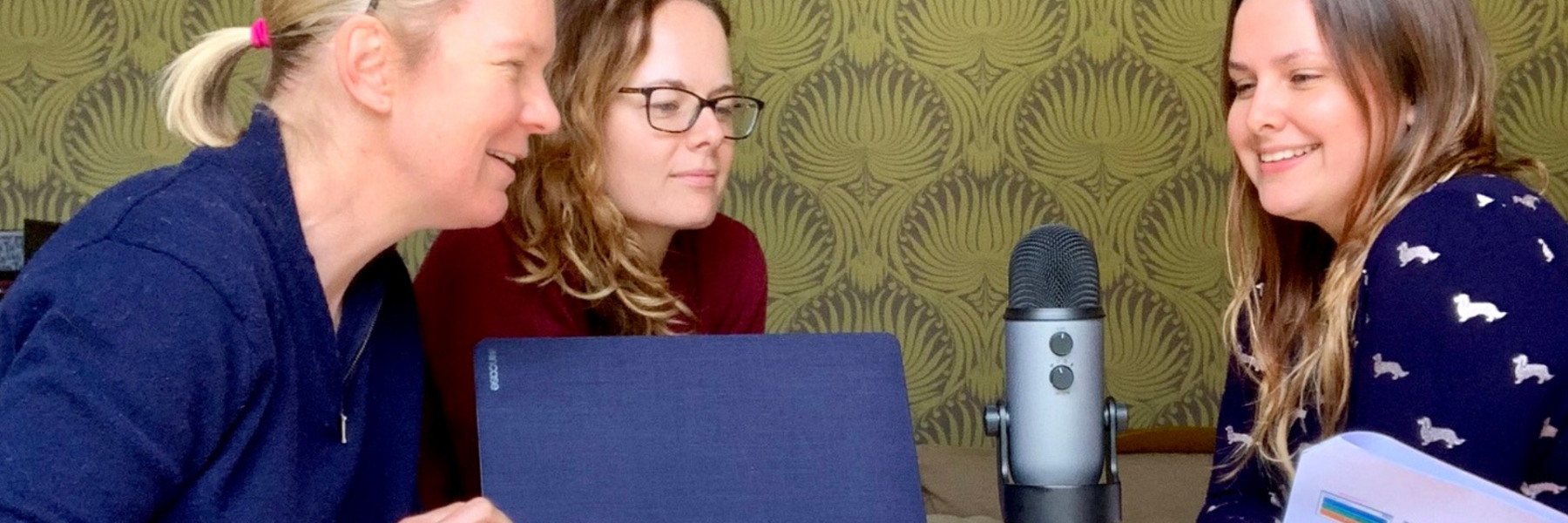 News
News


A team of specialist gastroenterology community dieticians in Somerset used webinars to increase patient understanding of Irritable Bowel Syndrome (IBS). Allied Health Professions Digital Practice award winner Marianne Williams explains why this technology is beneficial to both healthcare professionals and patients.
As part of the NHS England elective care 100 Day Challenge programme in 2017, our Somerset-based team of specialist gastroenterology community NHS dietitians set up a number of webinars for patients. The aim was to improve patient education and reduce the burden on both primary and secondary care.
We chose patients with Irritable Bowel Syndrome (IBS) as the pilot cohort. This chronic and debilitating condition is estimated as affecting 10-20% of the UK population and therefore has considerable financial implications. Using up significant amounts of clinical time in both primary and secondary care, in the UK it cost about £12 million per annum in 2012-2013.
For the first year, we ran webinars once a month at a set time through a webinar service. However, it soon became clear that patients wished to be able to access the webinars ‘on demand’, which allowed them to watch the information at a time and place of their choosing.
In response, our dietitian team uploaded the webinar recordings onto YouTube, routing them through our own bespoke website www.patientwebinars.co.uk. Now GPs and healthcare professionals simply needed to direct patients to the website, which not only supplied downloadable patient information but also handled all the administration, removing the need for extra admin staff time and associated costs.
The IBS webinars were a huge success. More than 95% of patients said they would recommend them to friends. About 52% of patients rated their knowledge of their condition as “fair”, “good” or “excellent” before watching the webinar, compared to 96% after watching.
The biggest reason for watching given was ‘the ability to obtain accurate and reliable information directly from NHS specialists.’
Interestingly, the largest numbers of attendees came from the 65-74-year old age group. This underlined that age is not a barrier to this form of technology. The webinars also proved popular with GPs and consultants, who could safely direct patients to the webinars without the need for referral letters.
Given the pilot’s success, our team were soon approached by NHS departments from all over the UK wishing to replicate this model of care, which is suitable for many medical disciplines. Our achievement was also recognised with a number of industry awards.
________________________________________________________________________
“It’s essential that the NHS embraces webinar technology to support patient-focused health education.”
________________________________________________________________________
The South West GP Inflammatory Bowel Disease (IBD) Champion, Dr Charles Andrews, contacted us and together we created a webinar titled ‘Nutrition in IBD in Remission’ for uploading to The Royal College of General Practitioners website as a professional development tool for GPs nationally. This webinar was also made accessible to patients on YouTube and the patient webinars website, and was created with guest panellists including a clinical nurse specialist, a gastroenterologist, a GP and a specialist dietitian showing excellent integration between primary and secondary care.
The team have since gone on to add webinars about newly diagnosed coeliac disease, using multidisciplinary teams of experts and are about to record specialist webinars about paediatrics.
At a time when NHS departments are increasingly overstretched and under pressure to see rising numbers of patients, many are looking for ways to reduce workload. This is particularly the case for dietetic departments, which have been swamped with IBS referrals over the last few years since the Low FODMAP Diet has been internationally recognised as a successful treatment for IBS. The dietary intervention was added to the National Institute for Health and Care Excellence Guidelines for IBS in 2015.
The use of the IBS webinar has reduced the referral rate into the Somerset gastroenterology 1-1 clinics by 44%, allowing the department to focus on other conditions. This would have been unthinkable prior to the webinars. In order to help other departments achieve this much needed reduction in referrals, our team de-branded the IBS webinar to create a valuable free resource for any NHS department or CCG across the UK.
We have just recorded a new version of the Low FODMAP Diet webinar for national use and NHS.UK recently decided to pilot the use of the Somerset First Line IBS Advice webinar on its website. This is a test of whether this form of patient education can be useful nationwide. The use of a 35-minute long educational video is a big departure from the normal 2-3 minute film and is best explained to patients as being similar to the advice you’d get if you saw a dietitian.
Data will be collected, and I hope to reveal some of the outcomes from this new form of patient education to my fellow health professionals at the NHS Health Summer School in July.
You Tube reaches 1 billion users every month and had transformed information-giving in little over a decade. There is no reason why the NHS could not embrace webinar technology and transform patient-focused health education in the same way.
For more information about the project please get in touch at [email protected].
Originally posted here